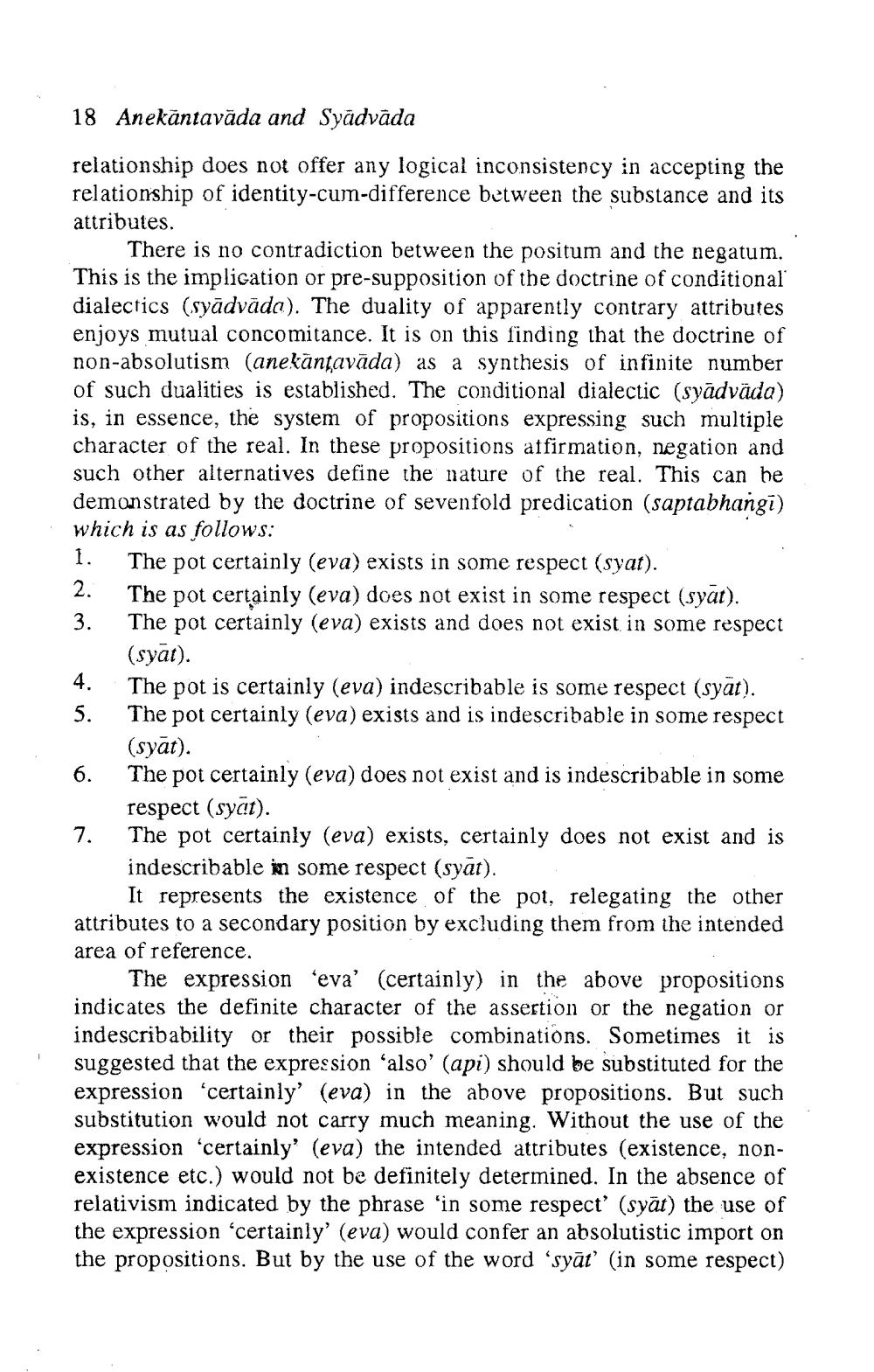________________
18 Anekāntavāda and Syādvāda
relationship does not offer any logical inconsistency in accepting the relationship of identity-cum-difference between the substance and its attributes.
There is no contradiction between the positum and the negatum. This is the implication or pre-supposition of the doctrine of conditional dialectics (syādvāda). The duality of apparently contrary attributes enjoys mutual concomitance. It is on this finding that the de non-absolutism (anekantavāda) as a synthesis of infinite number of such dualities is established. The conditional dialectic (syadvada) is, in essence, the system of propositions expressing such multiple character of the real. In these propositions affirmation, negation and such other alternatives define the nature of the real. This can be demonstrated by the doctrine of sevenfold predication (saptabhangi) which is as follows: 1. The pot certainly (eva) exists in some respect (syat). 2. The pot certainly (eva) does not exist in some respect (syar).
The pot certainly (eva) exists and does not exist in some respect (syāt). The pot is certainly (eva) indescribable is some respect (syat). The pot certainly (eva) exists and is indescribable in some respect (syāt). The pot certainly (eva) does not exist and is indescribable in some
respect (syat). 7. The pot certainly (eva) exists, certainly does not exist and is
indescribable in some respect (syāt).
It represents the existence of the pot, relegating the other attributes to a secondary position by excluding them from the intended area of reference.
The expression 'eva' (certainly) in the above propositions indicates the definite character of the assertion or the negation or indescribability or their possible combinations. Sometimes it is suggested that the expression ‘also' (api) should be substituted for the expression 'certainly' (eva) in the above propositions. But such substitution would not carry much meaning. Without the use of the expression "certainly' (eva) the intended attributes (existence, nonexistence etc.) would not be definitely determined. In the absence of relativism indicated by the phrase 'in some respect (syāt) the use of the expression 'certainly' (eva) would confer an absolutistic import on the propositions. But by the use of the word “syāt (in some respect)




